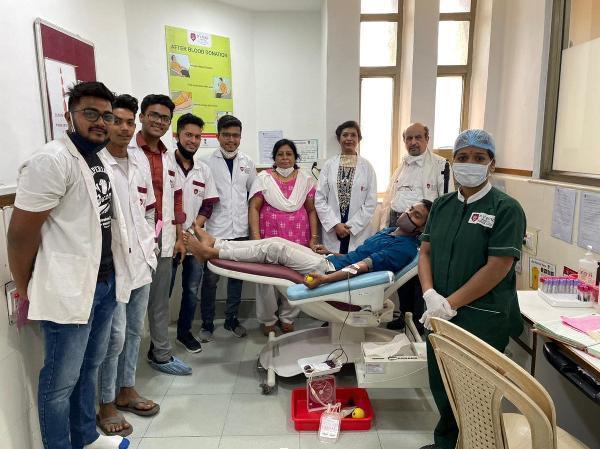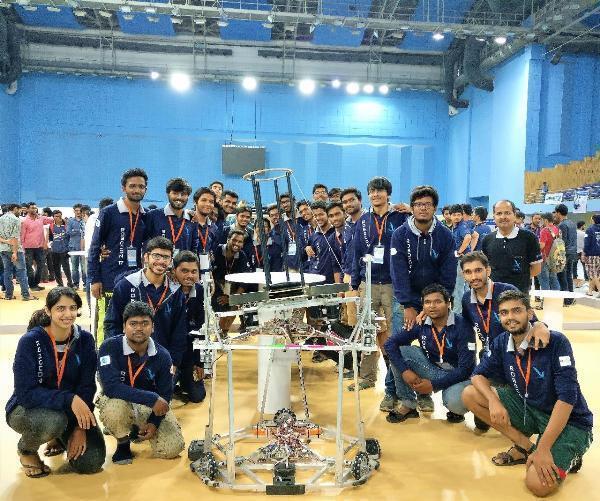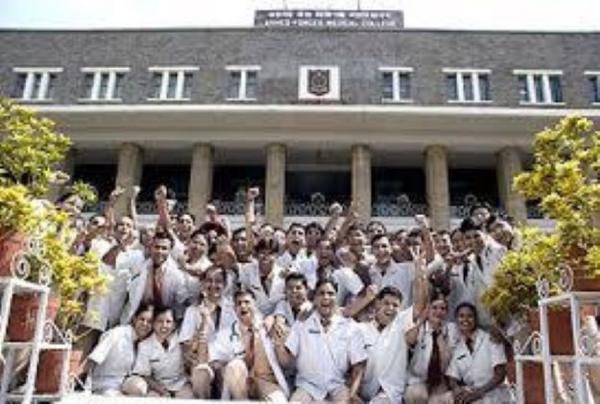 On-Page SEO Optimization – Fix Hidden Errors Killing Rankings!
On-Page SEO Optimization – Fix Hidden Errors Killing Rankings!
Understanding MBBS NRI Seats in Government Medical Colleges
Written by Pooja Varma » Updated on: June 17th, 2025

In India, pursuing a career in medicine is not only a prestigious endeavor but also a pathway to serving humanity through healthcare. For Non-Resident Indians (NRIs) and foreign nationals aspiring to study medicine in India, MBBS NRI seats in government medical colleges offer a promising opportunity. This article delves into the specifics of MBBS NRI seats, covering eligibility criteria, the application process, benefits, challenges, and considerations for prospective students.
Eligibility Criteria for MBBS NRI Seats
MBBS NRI seats in government medical colleges are reserved for Non-Resident Indians, Persons of Indian Origin (PIOs), Overseas Citizens of India (OCIs), and foreign nationals. To be eligible for these seats, candidates typically need to meet the following criteria:
Educational Qualification: Completion of 10+2 or equivalent with Physics, Chemistry, Biology/Biotechnology, and English as compulsory subjects.
NEET Examination: Qualifying the NEET (National Eligibility cum Entrance Test) is mandatory. Candidates must achieve the minimum required percentile as specified by the college or state authority.
NRI Status: Candidates must provide valid proof of their NRI status, which could include a passport, NRI certificate, PIO/OCI card, or other relevant documents.
Application Process for MBBS NRI Seats
The process for applying to MBBS NRI seats typically involves several steps:
NEET Registration: Candidates need to register for the NEET examination conducted by the National Testing Agency (NTA) and obtain their admit card.
NEET Examination: Candidates must appear for NEET on the scheduled date and secure a qualifying score.
Choice Filling: During NEET registration, candidates should indicate their preference for NRI seats in government medical colleges.
Counseling and Seat Allotment: Counseling for NRI seats may be conducted separately or as part of state or central counseling processes. Seat allocation is based on NEET scores, merit ranking, and availability of NRI seats in each college.
Benefits of MBBS NRI Seats
Diversity and Global Exposure: MBBS NRI seats promote diversity within government medical colleges by attracting students from different cultural backgrounds and countries.
Quality Education: Government medical colleges in India are renowned for their rigorous academic curriculum, experienced faculty, and state-of-the-art facilities, ensuring high standards of education.
Career Opportunities: Graduates from government medical colleges are recognized globally, enabling NRI students to pursue medical careers internationally with a degree from a reputable Indian institution.
Challenges and Considerations
Competitive Nature: NRI seats are limited, leading to intense competition among eligible candidates. Securing a seat requires a high NEET score and meeting all eligibility criteria.
Higher Fees: While fees for NRI seats are typically lower than those for private medical colleges, they are higher compared to fees for Indian nationals.
Documentation Requirements: Candidates must ensure all necessary documents proving their NRI status are accurate and submitted within specified timelines to avoid any discrepancies during the admission process.
Conclusion
MBBS NRI seats in government medical colleges represent an excellent opportunity for NRIs and foreign nationals to pursue their dream of becoming doctors in India. These seats not only offer a pathway to quality medical education but also provide exposure to diverse perspectives and global healthcare practices. Aspiring medical students should prepare diligently for the NEET examination, stay informed about the admission procedures, and ensure all documentation is in order to maximize their chances of securing an MBBS seat under the NRI quota.
For more information and updates on MBBS NRI seats in government medical colleges, candidates are encouraged to visit official college websites or consult with authorized counseling bodies conducting NEET counseling. With determination and strategic planning, aspiring doctors can embark on a fulfilling journey towards a successful medical career in India's esteemed government institutions.
Note: IndiBlogHub features both user-submitted and editorial content. We do not verify third-party contributions. Read our Disclaimer and Privacy Policyfor details.
Copyright © 2019-2025 IndiBlogHub.com. All rights reserved. Hosted on DigitalOcean for fast, reliable performance.

















